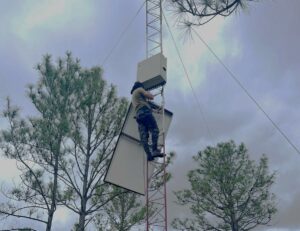Multiple murders, prison riots, extortion, killings, and clashes among criminal groups have driven up violence rates in Honduras. Collective homicides marked June as the country’s most brutal month of the year, with a total of 151 violent deaths, including 46 women murdered at the end of the month at the National Women’s Penitentiary for Social Adaptation in Tegucigalpa.
To counter the actions of criminals, President Xiomara Castro ordered the implementation of strong measures and affirmed that the murders were “planned by gangs, for which [the government] would take drastic measures.”
Since November 24, 2022, the government imposed partial emergency measures in high danger zones in the departments of Francisco Morazán and Cortés, as part of the Integral Plan for extortion and related crimes.
“Violence has several origins, in addition to its economic origin. In a context of chaos […] criminal groups take advantage of the situation,” Jessica Sánchez, director of the Honduran nongovernmental organization Grupo de Sociedad Civil, told Diálogo on July 24.
Starting the year well
In an early June analysis, the United Nations Development Program and the United States Agency for International Development (USAID), in conjunction with the Honduran Security Secretariat, revealed that between January and March 2023, violence was down compared to the same period in 2022. There were 247 fewer homicides and traffic accidents decreased by 19 percent.
“We have attacked drug trafficking like never before, destroying plantations and processing centers for cocaine paste or marijuana,” Honduran Army Colonel Ramiro Fernando Muñoz, commander of the Military Police of Public Order (PMOP) and president of the National Penitentiary System Intervention Commission, told Diálogo on July 24. “We have captured the main leaders dedicated to drug dealing, just as we constantly fight against criminal organizations that cause so much damage to the country.”

Forceful measures
Among the measures implemented by Castro are the “Solution against Crime” National Security Plan and the Candado Valle de Sula operation, in San Pedro Sula, to counter homicides. In response to the women murdered in the female prison, authorities launched Operation Faith and Hope on June 26, with the PMOP taking control of the Honduran penitentiary system’s 25 centers.
The PMOP said via Twitter that during Faith and Hope, authorities found that inmates had in their possession cell phones, walkie talkies, satellite phones, routers, antennas, telecommunications towers, solar panels, crack, marijuana, cocaine, sharp weapons, homemade firearms, projectiles of different caliber, AR-15 assault weapons, fragmentation grenades (30 inmates with them inside their bodies), cash, as well as military and police uniforms.
“However, measures to combat crime should not only be directed at areas with high poverty rates; these are measures directed at the poor who are in the supposedly most dangerous neighborhoods, but at the same time are the most unfortunate neighborhoods, where the maras are,” said Sánchez. “But the maras are the last chain of organized crime. The heads of the gangs and organized crime are not there […]. If we are going to solve the problem we have to attack them all.”
In early July, authorities carried out operations, raids, captures, and roadblocks, and transferred inmates classified as highly dangerous while imposing partial curfews. In addition, rewards were offered to capture the perpetrators of multiple murders and actions against extortion were intensified.
According to a report by the United Nations Development Program, 72 percent of extortions occur in the departments of Francisco Morazán, Cortés, and in the municipalities of the Central District, in Tegucigalpa and San Pedro Sula, both considered the most violent municipalities in Honduras. Compared to figures from 2021, extortion in 2022 increased by 153 percent.
This post was originally published on this site be sure to check out more of their content.






